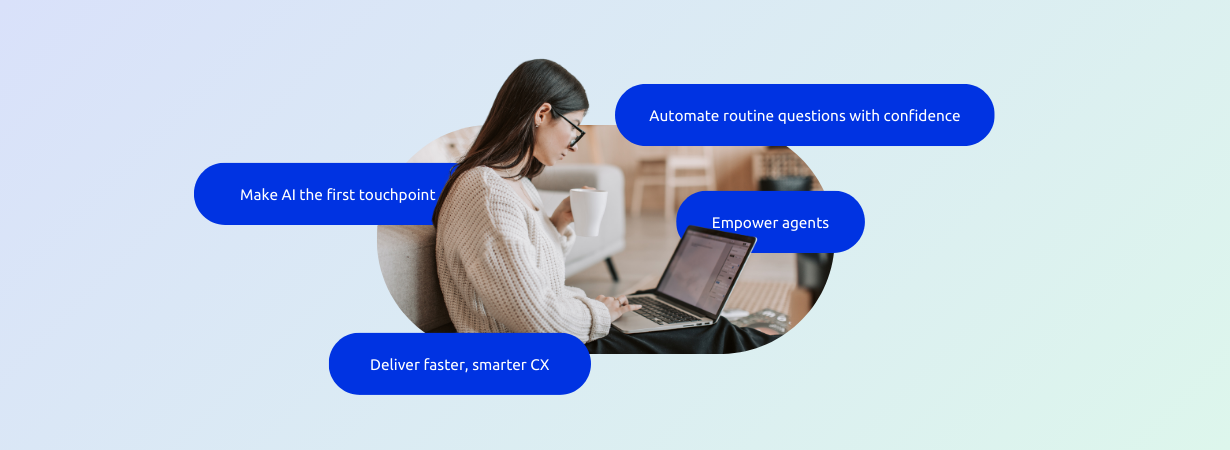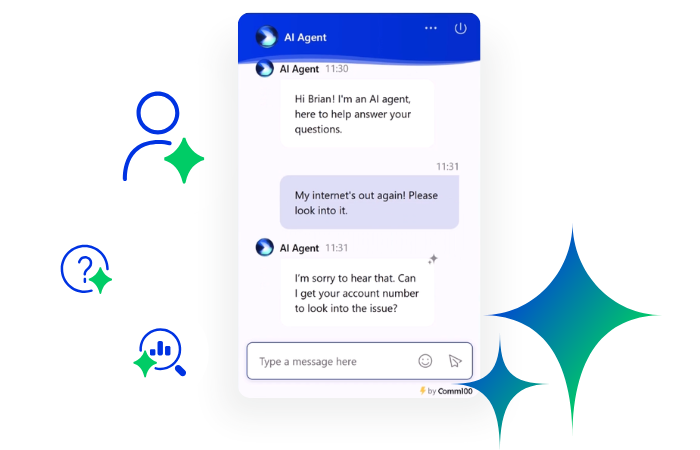In October 2025, Fast Track, a Malta-based CRM platform serving over 100 iGaming operators worldwide, suffered a cyberattack that exposed player names, addresses, + Read More about data protection challenges in igaming: what operators need to know in 2026
It’s live! Access exclusive 2026 AI live chat benchmarks & see how your team stacks up.
Unlock the insightsBlog
Featured Posts
Gaming operators evaluating AI chatbots face an overwhelming market. Hundreds of platforms claim to automate customer support, but most were built for e-commerce, + Read More about the best ai chatbots for gaming
When a Canadian organization shops for customer support software, the decision isn’t purely about features and pricing. It’s also about where customer data + Read More about the best canadian customer support software companies in 2026
A new series of industry research from SBC Media and Comm100 surveyed sportsbook and iGaming operators worldwide about their customer support operations. The + Read More about the state of customer support in igaming: what three industry surveys reveal about ai, retention, and responsible gambling
Comm100 has spent more than 15 years at the forefront of customer support technology. Products have come and gone. Some we iterated on, + Read More about our approach to ai at comm100
Healthcare institutions face a difficult balancing act: patients expect instant, 24/7 digital support, but federal regulations demand airtight protection of their most sensitive + Read More about the best hipaa-compliant chatbots for healthcare in 2026
When a patient sends your team a message asking about test results, medication refills, or insurance claims, that interaction contains protected health information + Read More about the 7 best hipaa-compliant ticketing systems in 2026
Healthcare organizations face a difficult balancing act. Patients expect fast, personalized support across multiple channels, yet every interaction involving protected health information (PHI) + Read More about the 7 best hipaa compliant customer support solutions in 2026
Arizona legalized sports betting in April 2021 through House Bill 2772, launching retail and mobile betting on September 9, 2021. The state’s regulatory + Read More about arizona responsible gambling: rules, regulations & guidelines

By clicking "Subscribe", you agree to our Privacy Policy.
Arkansas voters approved casino gaming and sports betting through Amendment 100 to the state constitution in November 2018, launching retail sports betting in + Read More about arkansas responsible gambling: rules, regulations & guidelines
The District of Columbia legalized sports betting through the Sports Wagering Lottery Amendment Act of 2018, which became law on May 3, 2019, + Read More about district of columbia responsible gambling: rules, regulations & guidelines
Customer support has long been treated as a cost center, absorbing budgets without generating direct revenue. But that perception is shifting rapidly. AI-powered + Read More about 9 ways ai can help companies reduce support costs in 2026
AI knowledge base software used to mean a searchable library of articles. In 2026, that definition is too small. Today, your knowledge base + Read More about the complete guide to choosing ai knowledge base software in 2026
The market for AI customer engagement software has matured considerably since the early chatbot experiments of the 2010s. Today’s platforms combine natural language + Read More about 10 best ai software for customer engagement across channels in 2026
An AI-first customer service strategy isn’t about replacing your agents with chatbots. It’s a fundamental rethinking of how support operations work, placing artificial + Read More about how to build an effective ai-first customer service strategy
LivePerson built its reputation as an enterprise conversational AI platform over two decades, powering customer messaging for some of the world’s largest brands. + Read More about top 7 alternatives to liveperson in 2026
Customer experience quality in North America has dropped for an unprecedented third consecutive year, reaching its lowest point since Forrester began tracking it. + Read More about how to optimize your main customer communication channels
The online gambling industry has reached a decision point. Facing higher regulatory costs, increased taxation, and tightening margins, operators are searching for technologies + Read More about ai agents are reshaping igaming player support: key findings from our latest industry research
Email remains a cornerstone of customer support. Despite the rise of chat, social media, and messaging apps, customers consistently choose email for non-urgent + Read More about the 10 best email ticketing software in 2026
Customer expectations have fundamentally shifted in the last few years. Previously, customer support was limited to either the phone or in-person visits. Then + Read More about transforming support quality assurance with ai





















